How has marketing changed during Covid-19?
How has marketing changed during Covid-19?

Covid-19 hasn’t only changed the way we live and work, it’s also changed the way we do marketing and how audiences behave.
Priorities are now different and over the last few months there have been many shifts in focus, with an impact on what audiences need and what they expect from brands, as consumers or employees.
Below we look at how Covid-19 has crushed most marketing budgets, made a significant dent in the channel mix, and changed the way we think about language when speaking to audiences.
Show me the money
It hasn’t actually been all bad news during Covid-19: some businesses have been thriving financially, producing and recruiting more than ever (food and drink, supermarkets, pharmacy, cleaning and hygiene products, parcel delivery…), but others have suffered significant losses (travel, tourism, hospitality, leisure, automotive, physical retail, to name a few).
With audiences’ needs and expectations changing almost overnight at the start of the pandemic, marketing plans, strategies and budgets which may have just been approved required a complete overhaul in many cases.
Insights from the Bellwether Report1 reveal that over 60% of respondents saw a reduction in marketing budgets for the period April-June 2020, whereas only 25% of those surveyed had seen budgets decreasing in the first quarter of 2020.
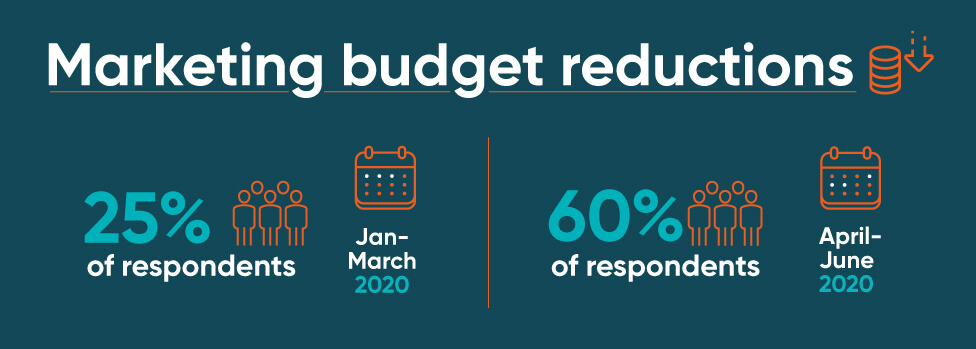
Specifically in the exhibitions and events arena, we know that all types of face to face events and experiences have suffered huge losses during the pandemic, with significant budget reductions for that channel across all sectors, and as many as 75% of businesses cutting down their events marketing budget1.
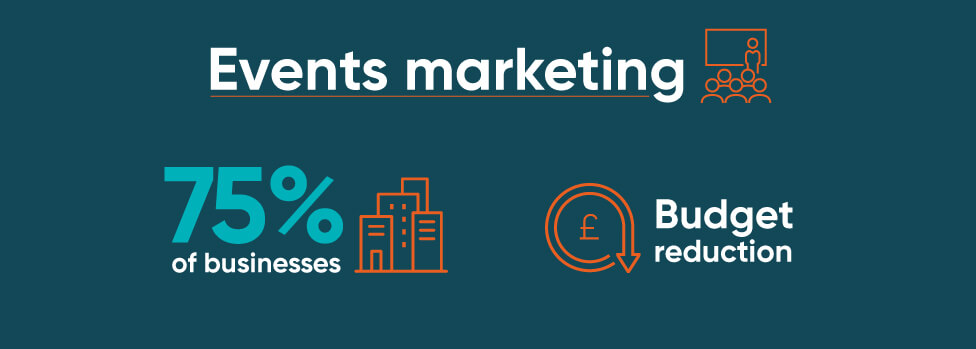
The channel mix has also been affected by other shifts and budgets cuts, with Out of Home being one of the hardest hit, with a 60% reduction in budgets1.
Measure your words
The pandemic hasn’t just changed budgets and the channel mix, it’s also had a deep impact on the way we think about language and how we address our audience.
Words like empathy, kindness, support, collaboration, conversation, energy, fight, together, safe and so many more have changed the way we see the world, and how we present it to others. The sentiments and intentions behind those words are now key ingredients in how every single sentence is built, whether written or spoken.
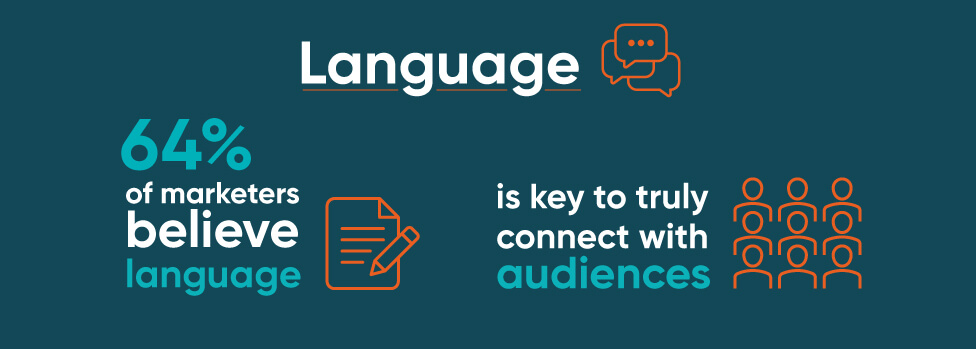
64% of marketing professionals believe language is more important
than ever to help you truly connect with audiences2.
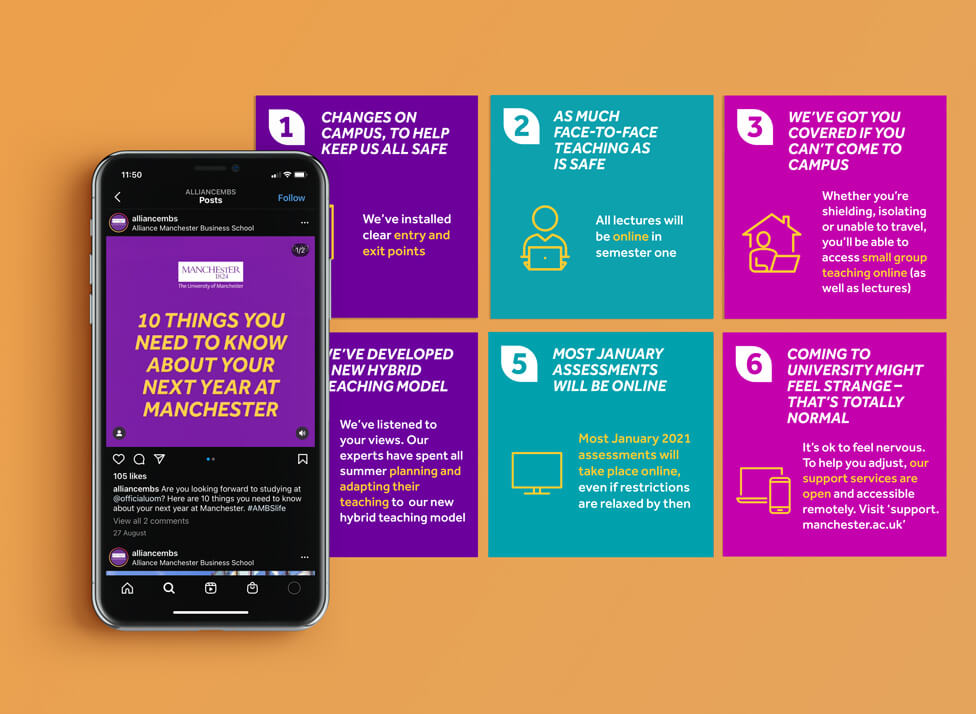
Back to the future?
So, given what we’ve been through in the last few months, will we ever go back to the ‘good old days’, or has marketing and the way audiences interact with brands been changed forever, particularly when it comes to event marketing?
In the years leading up to the start of the pandemic, events and experiential had become heroes of the marketing channel mix, whether with exhibitions and experiences to attract new customers, or by rethinking the office space and the overall employee experience.
Remember when it was all about interaction with the product and other people,
and sharing workspaces that would foster dialogue and new ways of thinking?
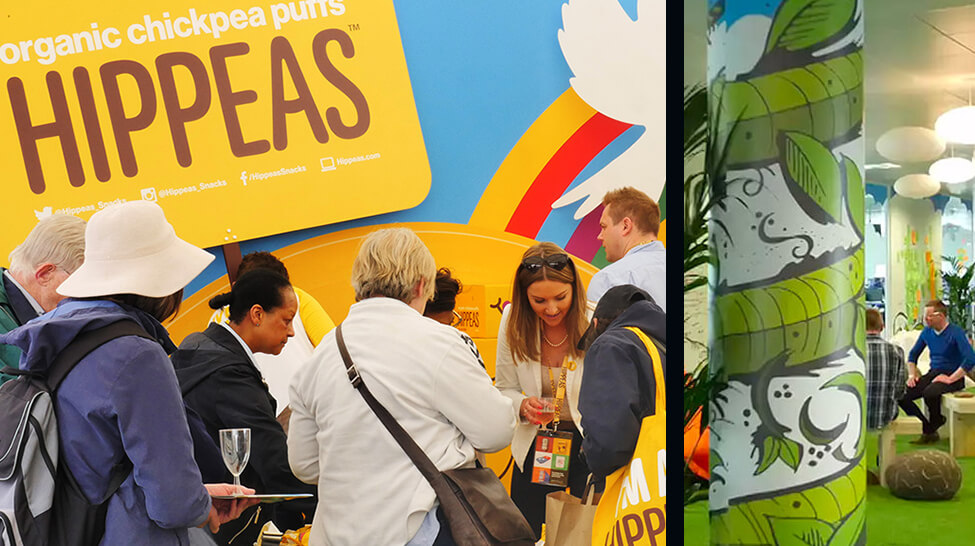
Are we eager to go back to that dynamic, hungry for human interaction, or are we instead feeling a little apprehensive and cautious, planning to take baby steps?
As things stand now, it sounds like in the near future we could well be enjoying the best of the old and the new world, as 97% of event marketers believe hybrid events are the future3.

Sources –
1The IPA, 2econsultancy, 3Bizzabo Report